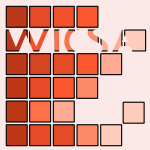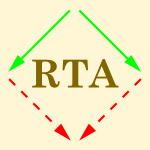Tag #cumulative
31 papers:
 EDM-2019-RenNLR #predict
EDM-2019-RenNLR #predict- Grade Prediction Based on Cumulative Knowledge and Co-taken Courses (ZR, XN, ASL, HR).
 CIKM-2019-IosifidisN #adaptation #named
CIKM-2019-IosifidisN #adaptation #named- AdaFair: Cumulative Fairness Adaptive Boosting (VI, EN), pp. 781–790.
 FSCD-2018-TimanyS #coq #induction
FSCD-2018-TimanyS #coq #induction- Cumulative Inductive Types In Coq (AT, MS), p. 16.
 ECIR-2016-WangJLSZL #knowledge base #recommendation
ECIR-2016-WangJLSZL #knowledge base #recommendation- Cold Start Cumulative Citation Recommendation for Knowledge Base Acceleration (JW, JJ, LL, DS, ZZ, CYL), pp. 748–753.
 ICML-2016-AJFMS #learning #predict
ICML-2016-AJFMS #learning #predict- Cumulative Prospect Theory Meets Reinforcement Learning: Prediction and Control (PLA, CJ, MCF0, SIM, CS), pp. 1406–1415.
 KDD-2016-FeiW0 #information management #learning
KDD-2016-FeiW0 #information management #learning- Learning Cumulatively to Become More Knowledgeable (GF, SW, BL0), pp. 1565–1574.
 SCAM-2015-FaragoHF #maintenance
SCAM-2015-FaragoHF #maintenance- Cumulative code churn: Impact on maintainability (CF, PH, RF), pp. 141–150.
 SIGIR-2015-WangSWZSLL #recommendation
SIGIR-2015-WangSWZSLL #recommendation- An Entity Class-Dependent Discriminative Mixture Model for Cumulative Citation Recommendation (JW, DS, QW, ZZ, LS, LL, CYL), pp. 635–644.
 TACAS-2015-AlbertFR #analysis
TACAS-2015-AlbertFR #analysis- Non-cumulative Resource Analysis (EA, JCF, GRD), pp. 85–100.
 WICSA-2014-Braude #architecture #development
WICSA-2014-Braude #architecture #development- Cumulative Software Architecture Development (EJB), pp. 163–166.
 SIGIR-2013-BalogR #classification #ranking #recommendation
SIGIR-2013-BalogR #classification #ranking #recommendation- Cumulative citation recommendation: classification vs. ranking (KB, HR), pp. 941–944.
 CIKM-2012-LeelanupabZJ #analysis #parametricity
CIKM-2012-LeelanupabZJ #analysis #parametricity- A comprehensive analysis of parameter settings for novelty-biased cumulative gain (TL, GZ, JMJ), pp. 1950–1954.
 PEPM-2012-MatsudaIN #multi #polynomial #traversal
PEPM-2012-MatsudaIN #multi #polynomial #traversal- Polynomial-time inverse computation for accumulative functions with multiple data traversals (KM, KI, KN), pp. 5–14.
 DHM-2011-TangwenF #analysis #architecture #learning #polymorphism
DHM-2011-TangwenF #analysis #architecture #learning #polymorphism- Polymorphic Cumulative Learning in Integrated Cognitive Architectures for Analysis of Pilot-Aircraft Dynamic Environment (TY, SF), pp. 409–416.
 SPLC-2011-KatoY #feature model #interactive #product line
SPLC-2011-KatoY #feature model #interactive #product line- Variation Management for Software Product Lines with Cumulative Coverage of Feature Interactions (SK, NY), pp. 140–149.
 LICS-2011-BokerCHK #specification
LICS-2011-BokerCHK #specification- Temporal Specifications with Accumulative Values (UB, KC, TAH, OK), pp. 43–52.
 CIKM-2009-YangXBHSY #case study #generative #information retrieval #social #using
CIKM-2009-YangXBHSY #case study #generative #information retrieval #social #using- A study of information retrieval on accumulative social descriptions using the generation features (LY, SX, SB, DH, ZS, YY), pp. 721–730.
 IFM-2007-HasanT #probability #using #verification
IFM-2007-HasanT #probability #using #verification- Verification of Probabilistic Properties in HOL Using the Cumulative Distribution Function (OH, ST), pp. 333–352.
 ICPR-v1-2006-SongK #gesture #recognition #segmentation
ICPR-v1-2006-SongK #gesture #recognition #segmentation- Simultaneous Gesture Segmentation and Recognition based on Forward Spotting Accumulative HMMs (JS, DK), pp. 1231–1235.
 ICPR-v4-2006-Choi #recognition #robust #speech #using
ICPR-v4-2006-Choi #recognition #robust #speech #using- A Noise Robust Front-end for Speech Recognition Using Hough Transform and Cumulative Distribution Mapping (EHCC), pp. 286–289.
 CSMR-2005-CapiluppiFR #complexity #open source
CSMR-2005-CapiluppiFR #complexity #open source- Exploring the Relationship between Cumulative Change and Complexity in an Open Source System (AC, AEF, JFR), pp. 21–29.
 ESOP-2002-HuIT #parallel
ESOP-2002-HuIT #parallel- An Accumulative Parallel Skeleton for All (ZH, HI, MT), pp. 83–97.
 RTA-2001-KuhnemannGK #functional #source code
RTA-2001-KuhnemannGK #functional #source code- Relating Accumulative and Non-accumulative Functional Programs (AK, RG, KK), pp. 154–168.
 ICPR-v1-2000-ShioyamaWM #detection
ICPR-v1-2000-ShioyamaWM #detection- Object Detection with Gabor Filters and Cumulative Histograms (TS, HW, SM), pp. 1704–1707.
 ICPR-v2-2000-LiLT #analysis #image
ICPR-v2-2000-LiLT #analysis #image- Image Analysis by Accumulative Hopfield Matching (WJL, TL, HTT), pp. 2442–2445.
 FSE-2000-YamamotoMI #file system #metric #version control
FSE-2000-YamamotoMI #file system #metric #version control- Accumulative versioning file system Moraine and its application to metrics environment MAME (TY, MM, KI), pp. 80–87.
 DAC-1997-DingWHP #estimation #statistics
DAC-1997-DingWHP #estimation #statistics- Statistical Estimation of the Cumulative Distribution Function for Power Dissipation in VLSI Cirucits (CSD, QW, CTH, MP), pp. 371–376.
 JICSLP-1996-CaseauL #scheduling
JICSLP-1996-CaseauL #scheduling- Cumulative Scheduling with Task Intervals (YC, FL), pp. 363–377.
 VLDB-1994-SripadaW
VLDB-1994-SripadaW - Cumulative Updates (SMS, BW), pp. 534–545.
 HCI-ACS-1993-LimC #approach
HCI-ACS-1993-LimC #approach- An Integrated Approach to Cumulative Trauma Disorders in Computerized Offices: The Role of Psychosocial Work Factors, Psychological Stress and Ergonomic Risk Factors (SYL, PC), pp. 880–885.
 HCI-SES-1987-MarekN
HCI-SES-1987-MarekN - Cumulative Fatigue Symptoms of Dialogue and Data Entry VDU Operators (TM, CN), pp. 255–262.
 EDM-2019-RenNLR #predict
EDM-2019-RenNLR #predict CIKM-2019-IosifidisN #adaptation #named
CIKM-2019-IosifidisN #adaptation #named FSCD-2018-TimanyS #coq #induction
FSCD-2018-TimanyS #coq #induction ECIR-2016-WangJLSZL #knowledge base #recommendation
ECIR-2016-WangJLSZL #knowledge base #recommendation ICML-2016-AJFMS #learning #predict
ICML-2016-AJFMS #learning #predict KDD-2016-FeiW0 #information management #learning
KDD-2016-FeiW0 #information management #learning SCAM-2015-FaragoHF #maintenance
SCAM-2015-FaragoHF #maintenance SIGIR-2015-WangSWZSLL #recommendation
SIGIR-2015-WangSWZSLL #recommendation TACAS-2015-AlbertFR #analysis
TACAS-2015-AlbertFR #analysis WICSA-2014-Braude #architecture #development
WICSA-2014-Braude #architecture #development SIGIR-2013-BalogR #classification #ranking #recommendation
SIGIR-2013-BalogR #classification #ranking #recommendation CIKM-2012-LeelanupabZJ #analysis #parametricity
CIKM-2012-LeelanupabZJ #analysis #parametricity PEPM-2012-MatsudaIN #multi #polynomial #traversal
PEPM-2012-MatsudaIN #multi #polynomial #traversal DHM-2011-TangwenF #analysis #architecture #learning #polymorphism
DHM-2011-TangwenF #analysis #architecture #learning #polymorphism SPLC-2011-KatoY #feature model #interactive #product line
SPLC-2011-KatoY #feature model #interactive #product line LICS-2011-BokerCHK #specification
LICS-2011-BokerCHK #specification CIKM-2009-YangXBHSY #case study #generative #information retrieval #social #using
CIKM-2009-YangXBHSY #case study #generative #information retrieval #social #using IFM-2007-HasanT #probability #using #verification
IFM-2007-HasanT #probability #using #verification ICPR-v1-2006-SongK #gesture #recognition #segmentation
ICPR-v1-2006-SongK #gesture #recognition #segmentation ICPR-v4-2006-Choi #recognition #robust #speech #using
ICPR-v4-2006-Choi #recognition #robust #speech #using CSMR-2005-CapiluppiFR #complexity #open source
CSMR-2005-CapiluppiFR #complexity #open source ESOP-2002-HuIT #parallel
ESOP-2002-HuIT #parallel RTA-2001-KuhnemannGK #functional #source code
RTA-2001-KuhnemannGK #functional #source code ICPR-v1-2000-ShioyamaWM #detection
ICPR-v1-2000-ShioyamaWM #detection ICPR-v2-2000-LiLT #analysis #image
ICPR-v2-2000-LiLT #analysis #image FSE-2000-YamamotoMI #file system #metric #version control
FSE-2000-YamamotoMI #file system #metric #version control DAC-1997-DingWHP #estimation #statistics
DAC-1997-DingWHP #estimation #statistics JICSLP-1996-CaseauL #scheduling
JICSLP-1996-CaseauL #scheduling VLDB-1994-SripadaW
VLDB-1994-SripadaW  HCI-ACS-1993-LimC #approach
HCI-ACS-1993-LimC #approach HCI-SES-1987-MarekN
HCI-SES-1987-MarekN 











